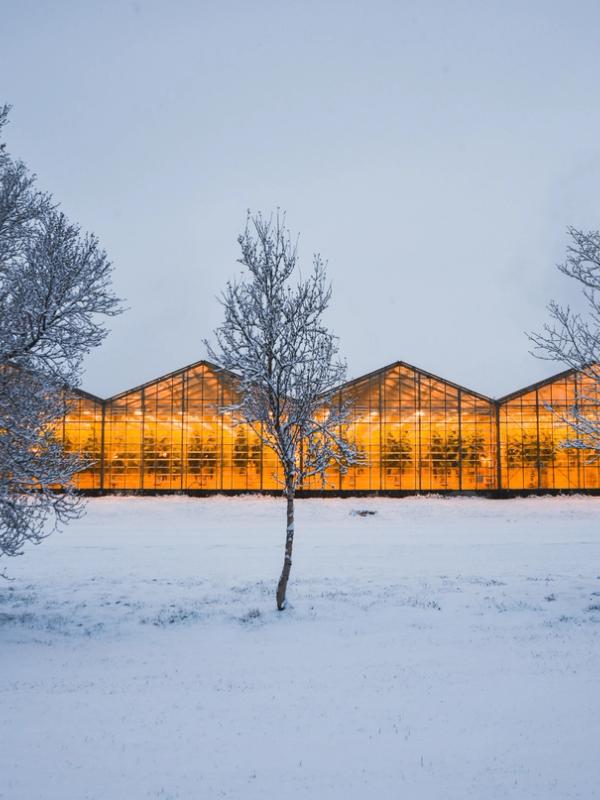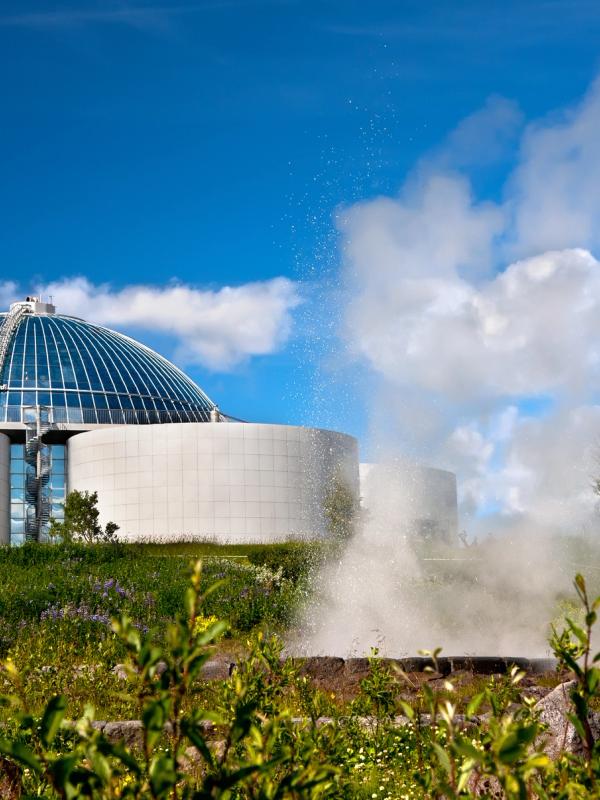
The Best Museums in Reykjavik: History, Art & Culture
Reykjavik may be a small city, but its museums pack in a remarkable range of stories. From Viking sagas and Iceland’s struggles for independence to striking modern art and the wonders of the natural world, these institutions offer a window into the country’s past, present, and creative spirit. Many are within walking distance of each other downtown, making it easy to build a museum-hopping day into your trip.
Whether you’re traveling with kids, curious about history, or want to dive into Iceland’s thriving arts scene, Reykjavik has a museum for you.
The Best Museums in Reykjavik
Reykjavik’s museums cover every angle of Icelandic life, from Viking settlements and seafaring traditions to cutting-edge art and quirky cultural gems. Most are small and easy to explore in an hour or two, while others invite you to linger for half a day.
History & Heritage Museums in Reykjavik
Reykjavik is full of museums that bring Iceland’s past to life, from Viking settlements to fishing traditions. These spots are perfect for travelers who want to connect with the country’s roots.
National Museum of Iceland
Best for travelers who want the complete story of Iceland in one place.
The National Museum takes you on a journey through Iceland’s history, from the first Viking settlements to the modern nation. Its collection includes medieval church carvings, weapons, tools, and everyday objects that reveal how Icelanders lived over the centuries. Highlights include the iconic Valþjófsstaður door, a 13th-century carved wooden panel that tells a saga in miniature.
The Settlement Exhibition
Best for history lovers and families who want to literally step into Reykjavik’s Viking past.
Built around the excavated remains of a Viking longhouse, this underground museum offers a fascinating look at Reykjavik’s earliest days. Interactive displays and multimedia bring the Viking Age to life, from daily domestic routines to the broader story of Iceland’s settlement in the 9th century. The blend of archaeology and storytelling makes the Viking past feel close and tangible.
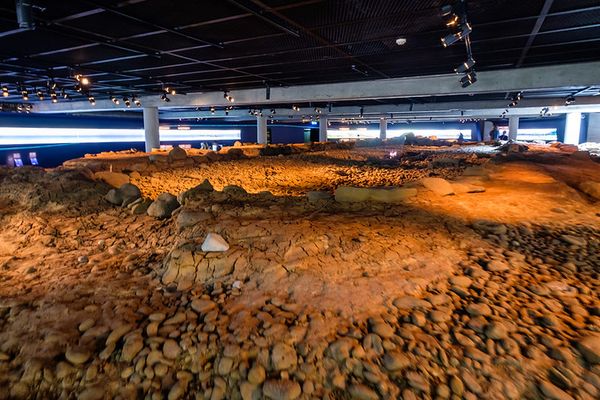
Saga Museum
Best for families and visitors who want a fun, hands-on introduction to the sagas.
Set in a former fish warehouse on the Old Harbor, the Saga Museum uses lifelike wax figures to bring the legendary sagas to life. Visitors can meet Leifur Eiríksson, see scenes from the Black Death, and even try on Viking costumes for photos. The storytelling is dramatic and a little theatrical, but it makes Iceland’s early history easy to grasp.
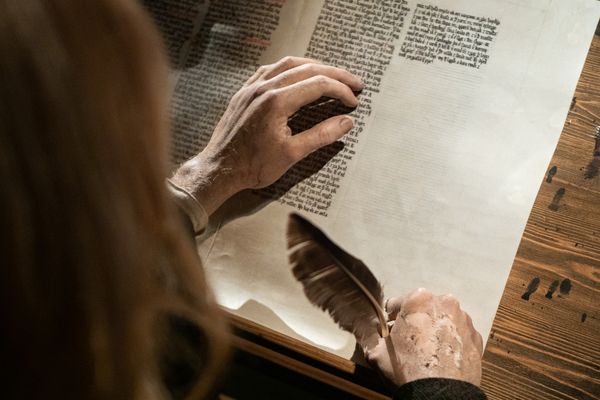
Reykjavik Maritime Museum
Best for anyone curious about the fishing heritage that sustained Iceland for centuries.
Reykjavik’s seafaring history is told inside a former fish factory. Exhibits include traditional wooden boats, stories of fishermen braving the North Atlantic, and displays on Iceland’s role in the Cod Wars. Outside, you can step aboard the Óðinn, a former coast guard vessel. The museum shows how the sea has shaped Icelandic life – from survival to national identity.
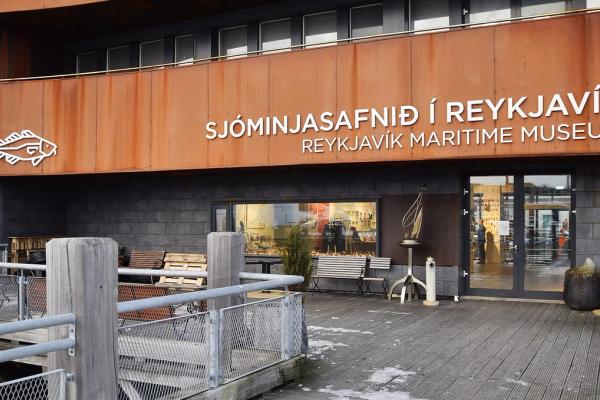
Árbær Open Air Museum
Best for families and history buffs who enjoy immersive, outdoor museums.
On the edge of Reykjavik, Árbær is a living history museum where old houses and turf-roofed buildings recreate a 19th-century Icelandic village. Costumed guides bring the past to life, while the interiors showcase how families lived during different eras. With farm animals in summer and themed events year-round, it’s a favorite for locals and visitors alike.
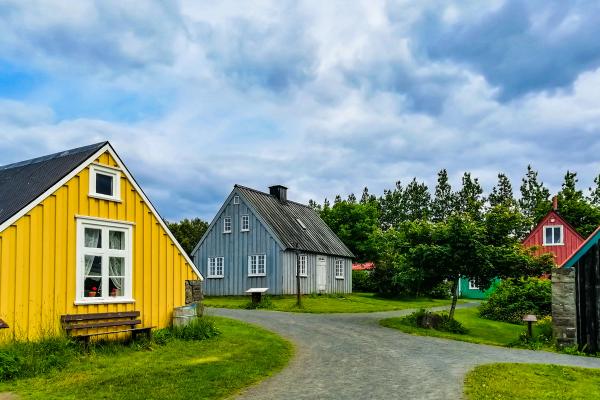
Art & Design Museums in Reykjavik
Iceland’s creativity shines through in Reykjavik’s art and design museums. From historic painters to contemporary installations, you’ll find a mix of local talent and Nordic influences.
Reykjavik Art Museum (Hafnarhús, Kjarvalsstaðir & Ásmundarsafn)
Best for art lovers who want to see Iceland’s creativity past and present across three unique venues.
Iceland’s largest art museum spans three distinct spaces. Hafnarhús in the harbor area showcases contemporary art and installations. Kjarvalsstaðir celebrates the work of beloved landscape painter Jóhannes Kjarval, whose atmospheric canvases capture Iceland’s spirit. Ásmundarsafn, set in the former home of sculptor Ásmundur Sveinsson, displays his modernist works in a striking white domed building surrounded by sculpture gardens.
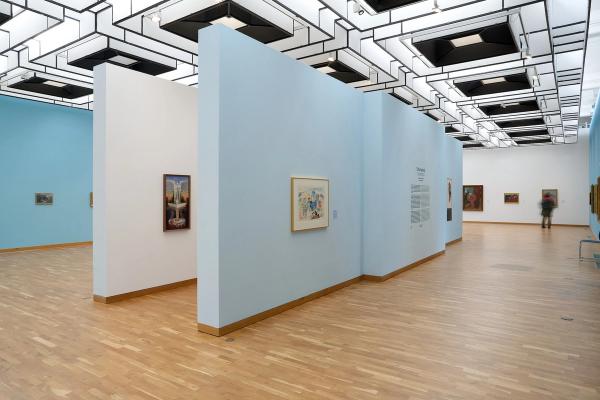
National Gallery of Iceland
Best for those seeking a deeper dive into Iceland’s visual identity.
Just behind the lake Tjörnin, the National Gallery focuses on Icelandic art from the 19th century to today. Works by pioneers like Þórarinn B. Þorláksson and contemporary artists alike show how Iceland’s landscapes and identity have shaped visual culture. Rotating exhibitions bring in international perspectives, creating a conversation between Iceland and the wider art world.
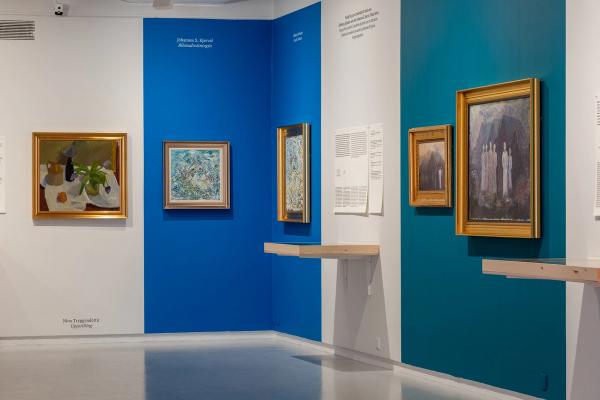
Nordic House
Best for design lovers and those seeking Nordic cultural connections beyond Iceland.
Designed by celebrated Finnish architect Alvar Aalto, the Nordic House is a cultural hub that connects Iceland with its Nordic neighbors. It hosts rotating art exhibitions, concerts, lectures, and festivals, with a striking design that blends modernist simplicity and natural materials. The on-site café, overlooking Lake Tjörnin, is also one of the most atmospheric in Reykjavik.
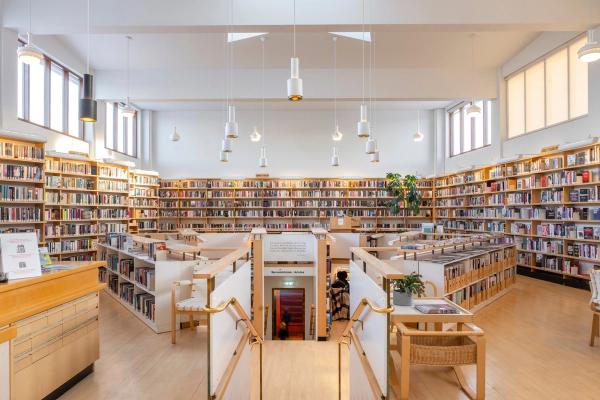
Nature & Environment Museums in Reykjavik
These museums highlight the natural wonders that make Iceland so unique. Expect interactive science, dramatic volcanic displays, and hands-on learning about the environment.
Perlan Museum
Best for families, science fans, and anyone who wants interactive exhibits paired with sweeping city views.
Inside a futuristic glass dome on Öskjuhlíð Hill, Perlan blends natural science with high-tech exhibitions. Visitors can walk through a real ice cave, watch Northern Lights shows in the planetarium, and learn how glaciers, volcanoes, and the ocean shape Iceland’s fragile environment. The observation deck offers panoramic views over Reykjavik and beyond.
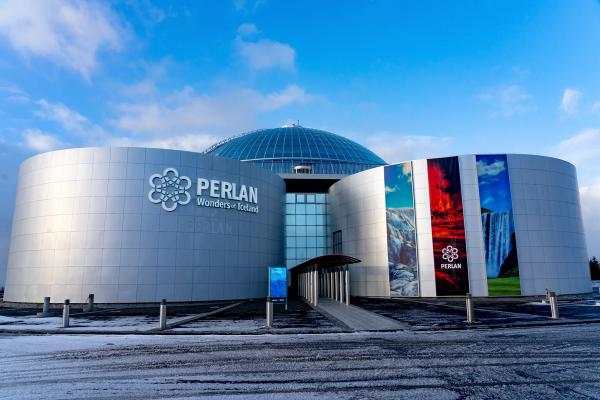
Icelandic Lava Show
Best for thrill-seekers, geology buffs, and anyone curious about Iceland’s volcanic heart.
This dramatic experience recreates a volcanic eruption by pouring real, molten lava into the exhibition space – the only place in the world you can safely see flowing lava indoors. The show explains Iceland’s geology in an engaging way, mixing science with spectacle. You’ll feel the heat, hear the crackle, and gain a new respect for the forces that shaped the island.
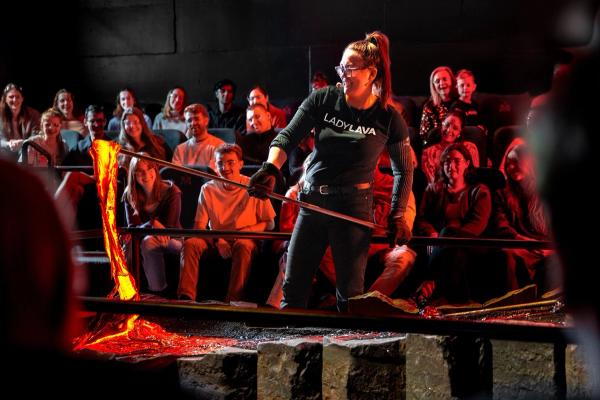
Whales of Iceland
Best for children and ocean enthusiasts who want an up-close encounter with Iceland’s marine giants.
This immersive museum features life-size models of 23 whale species found in Icelandic waters. Walking among the models gives a powerful sense of scale, while multimedia exhibits explain marine biology and conservation. The VR experience simulates diving alongside whales, making it a hit with younger visitors.
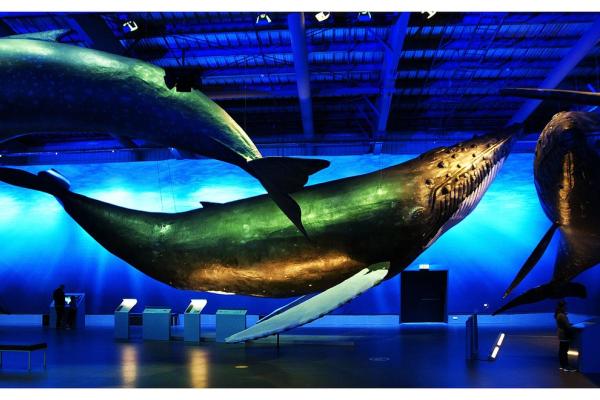
Aurora Reykjavik (Northern Lights Center)
Best for travelers who want to learn about the Northern Lights during the day.
Dedicated to the aurora borealis, Aurora Reykjavik combines science, photography, and technology to explain the mysteries of the Northern Lights. Visitors can enjoy interactive displays, step inside a virtual-reality experience, and browse stunning images taken by Icelandic photographers. Even if you don’t see the lights outdoors, this museum gives you the next best thing.
Quirky & Cultural Museums in Reykjavik
Reykjavik has no shortage of unusual and offbeat museums. If you’re curious about the city’s mischievous side, these cultural gems deliver something unexpected.
Icelandic Phallological Museum
Best for the curious and those who enjoy Reykjavik’s quirkier side.
One of Reykjavik’s most unusual attractions, this museum houses a collection of over 200 penises from land and sea mammals, displayed in jars and cases. It’s both scientific and tongue-in-cheek, with a side of Icelandic humor. Most visitors leave equal parts amused and astonished.
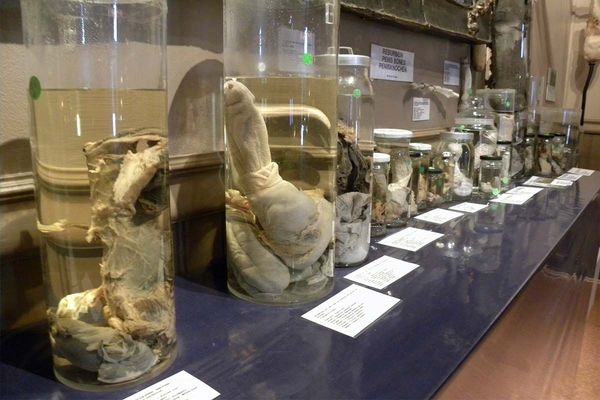
Punk Museum
Best for music fans and travelers who like their culture raw and unconventional.
Located in a converted underground public toilet on Bankastræti, this small museum celebrates Iceland’s punk and new wave scene. Posters, records, and memorabilia capture the DIY energy of the 80s, when bands like Tappi Tíkarrass (featuring a young Björk) shook up Reykjavik’s cultural life.
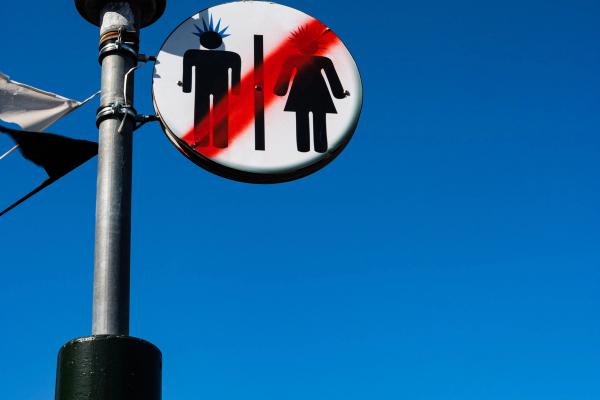
Outdoor & Free Museums & Sculptures in Reykjavik
Not all of Reykjavik’s art and history is behind museum walls. These outdoor collections and sculptures are free to visit and make the city itself feel like an open-air gallery.
Einar Jónsson Sculpture Garden
Best for art lovers looking for an open-air gallery in the heart of Reykjavik.
Beside Hallgrímskirkja, this quiet garden displays 26 bronze works by Iceland’s pioneering sculptor Einar Jónsson. It’s free to enter year-round and offers a tranquil space to wander among mythic figures cast in bronze.
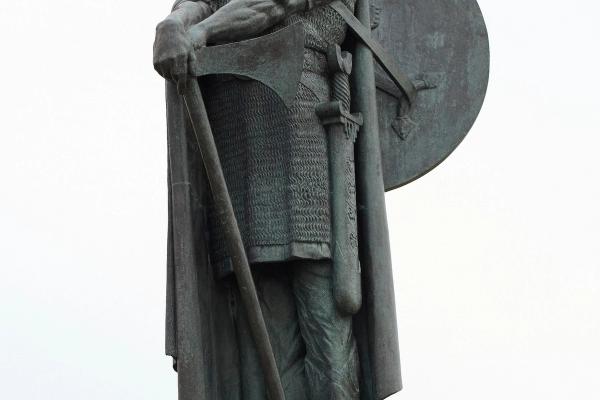
Sun Voyager (Sólfarið)
Best for photographers and anyone drawn to Reykjavik’s iconic public art.
This gleaming steel sculpture on the waterfront is one of Reykjavik’s most photographed landmarks. Designed by Jón Gunnar Árnason, it resembles a Viking ship, though the artist described it as a dream vessel bound for undiscovered horizons. Sunrise and sunset are the most magical times to see it.
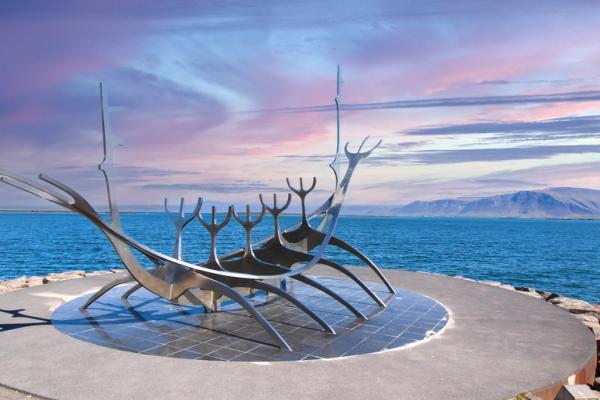
Ólöf Nordal’s “Þúfa” (The Hillock)
Best for walkers along the waterfront who like thought-provoking public art.
Near the Grandi Harbor, Þúfa is a striking outdoor artwork by Ólöf Nordal: a grass-covered mound with a small wooden hut once used for drying fish. Visitors climb a spiraling path to the top, where views stretch across the harbor and mountains. Both playful and contemplative, it ties modern art to Iceland’s maritime traditions.
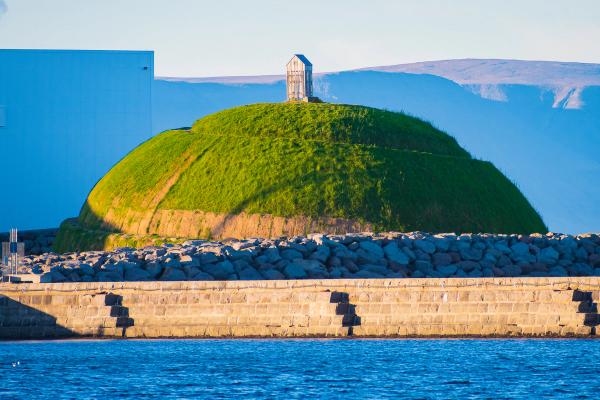
Outdoor Art Walks
Best for travelers who like to explore at their own pace and discover art in everyday corners of the city.
Reykjavik is dotted with public sculptures, especially around Tjörnin lake and along the harbor front. From abstract works to playful modern pieces, the city doubles as an outdoor gallery where you can stumble upon art while strolling between sights.
Reykjavik Botanic Garden
Best for nature lovers and anyone who wants a peaceful escape from downtown.
Set in Laugardalur valley, this five-hectare park showcases over 5,000 plant species. It’s free to wander, with shaded paths, ponds, and birdlife making it a local favorite for a quiet break. The café inside, built in a restored greenhouse, is a lovely stop for coffee or lunch.
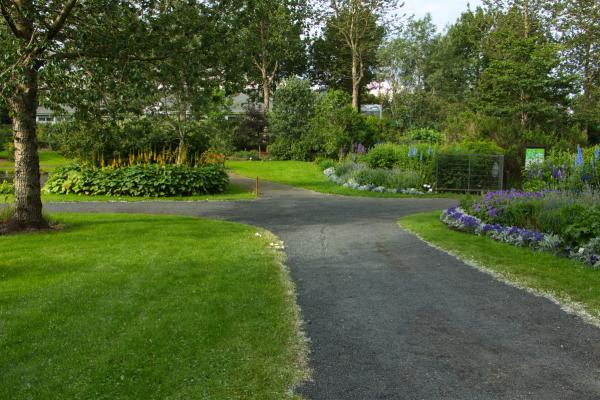
Practical Tips for Visiting Reykjavik’s Museums
- Location: Most museums are clustered around downtown and the Old Harbor, making them easy to visit on a day out in the capital.
- Costs: Expect tickets to range from 1,500–3,000 ISK ($11–22 USD). Many museums are free for children, and there are discounts for students and seniors.
- Opening Hours: Most locations are open daily from late morning (10–11 am) until 5–6 pm, although hours may vary.
- Museum Cards: The Reykjavik City Card includes free entry to top museums such as the National Museum, Settlement Exhibition, Reykjavik Art Museum, Saga Museum, and Maritime Museum, plus unlimited public transport, admission to city swimming pools, and discounts at galleries and attractions.
Iceland’s Museum Culture
Reykjavik’s museums reflect the country’s balance of tradition and creativity. You’ll find the sagas sitting alongside cutting-edge art, and natural science exhibitions next to punk memorabilia. Visiting a couple while staying in Reykjavik is one of the best ways to spend time in the city and learn about Iceland as a whole.



